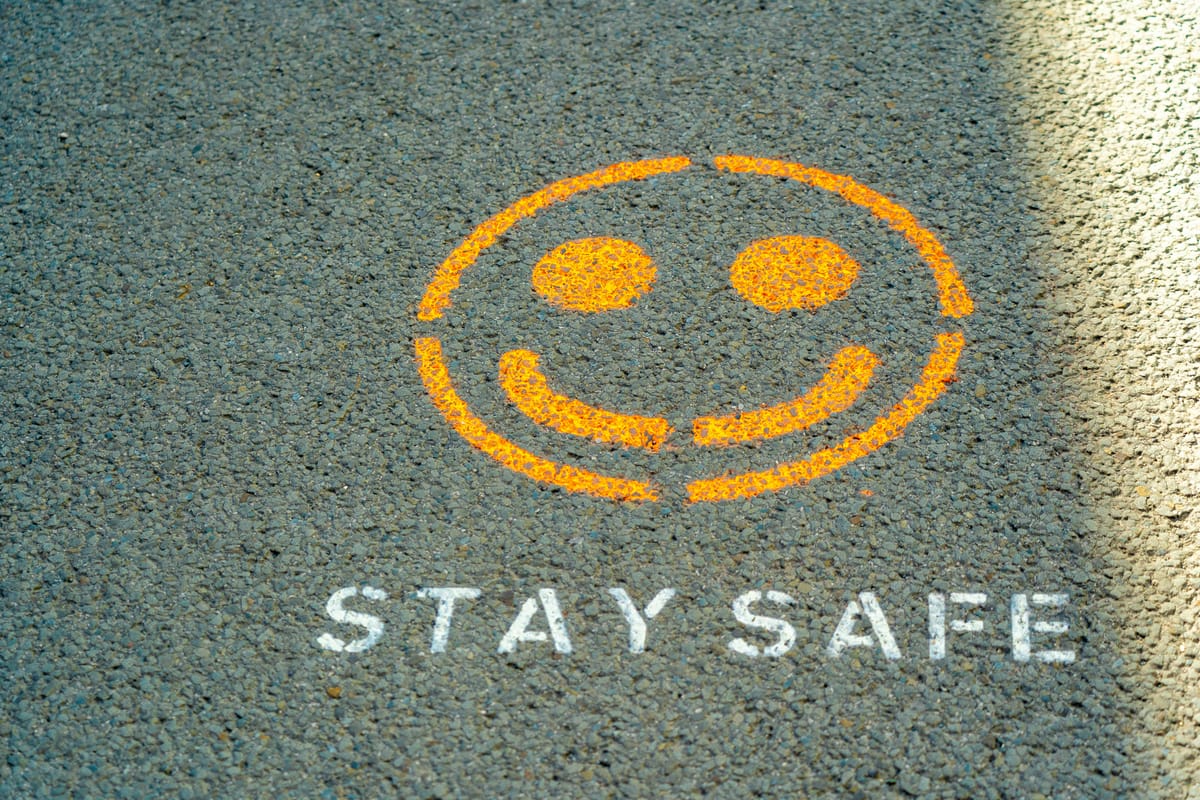Happy and Healthy and Together
When "that they may be one" and "life everlasting" overlap

When "that they may be one" and "life everlasting" overlap
This is one of the regular newsletter columns written in my role as the Wisconsin Council of Churches Community Health Program Manager. You can see the original piece and other examples at the WCC website.
In May of 2023, Vivek Murthy issued what's called a Surgeon General's advisory. Advisories typically call attention to "urgent public health issues" like smoking or obesity. But this one was different. It focused on the effects of loneliness and social isolation. It's long been a concern of Murthy's, and one that he has chosen to use his considerable platform to highlight.
According to the report, social isolation and loneliness(1) have real consequences for health. Those include cardiovascular health, cancer outcomes, dementia and Alzheimer's disease. They can even change academic and financial success!
And yes, they effect COVID too. American counties with less social capital had more COVID-19 cases and deaths. Areas with more social participation had fewer deaths. One study found higher levels of interpersonal and government trust associated with lower rates of infection.
The whole report is long but fascinating. It's a subject that touches on a lot of different parts of our lives. I recommend it if you're interested in public health or policy.
Murthy includes a warning in the advisory: social divisions cause poor health. Americans need to build "more connected lives and a more connected society," he says. If we fail to do so,
we will pay an ever-increasing price in the form of our individual and collective health and well-being. And we will continue to splinter and divide until we can no longer stand as a community or a country. Instead of coming together to take on the great challenges before us, we will further retreat to our corners—angry, sick, and alone.
And then he says, "We are called to build a movement to mend the social fabric of our nation."
If you hear in that religious language that echoes the Jewish idea of "tikkun olam,"(2) you might not be wrong. Murthy's suggested approach is very systematic, aimed at rebuilding our social world.
It's also one that has a lot of application in the world of faith communities. It applies specifically for our collective work on COVID. Investigations found that people with fewer social ties were more likely to get sick after exposure to common viruses like colds or the flu. They were also more likely to develop more severe symptoms. Another study found having fewer social connections hindered the effectiveness of COVID vaccines.
And of course, sponsoring pro-social behavior is what religious communities are all about. Even the casual meet-and-greet after worship is helpful. Churches and other faith communities also promote friendships and other relationships. They encourage the kind of civic participation that leads to a connected community.
It's possible to carry on this work during a pandemic. Getting together over Zoom might be imperfect, but it does beat not getting together at all. It's also possible to encourage volunteerism and social support in response to crisis.
But a lot of the work is best carried out before a public health emergency strikes. Look at the suggestions for community-based organizations found in the advisory. You'll find many are things that faith communities do quietly and all the time:
- Create opportunities and spaces for inclusive social connection
- Embed social connection in internal policies, practices, and evaluations
- Actively seek and build partnerships with other community institutions
- Advance public education and awareness...of social connection and disconnection among community members
- Create and provide education, resources and support programs
- Foster a culture of connection in the broader community
Leaning into this work would be a good thing. It might lead to a stronger, more resilient and healthier community. It might also result in strengthened faith communities.
We worry a lot in the church world about decline and shrinking budgets. Yet we know that people are hungry for connection. What if we took seriously the idea that coming together as one meant better health? What if we took on the job of "mending social fabric"? What if we did it in ways that went beyond the traditional boundaries of congregation and community?
No, seriously, I'm asking. Evidence indicates both congregation and community would be better prepared to meet the next COVID wave. Ditto any other emergency. But what creative ways would you use to get us happy, healthy and together? I want to hear.
(1)Social isolation is defined as the fact of having few or inadequate social connections. Loneliness is the negative feeling associated with the experience of social isolation.
(2)The closest Christian concept is reconciliation, which like tikkun olam is aimed at restoring shalom to the world. I've often thought that's a solid foundation for health ministry.